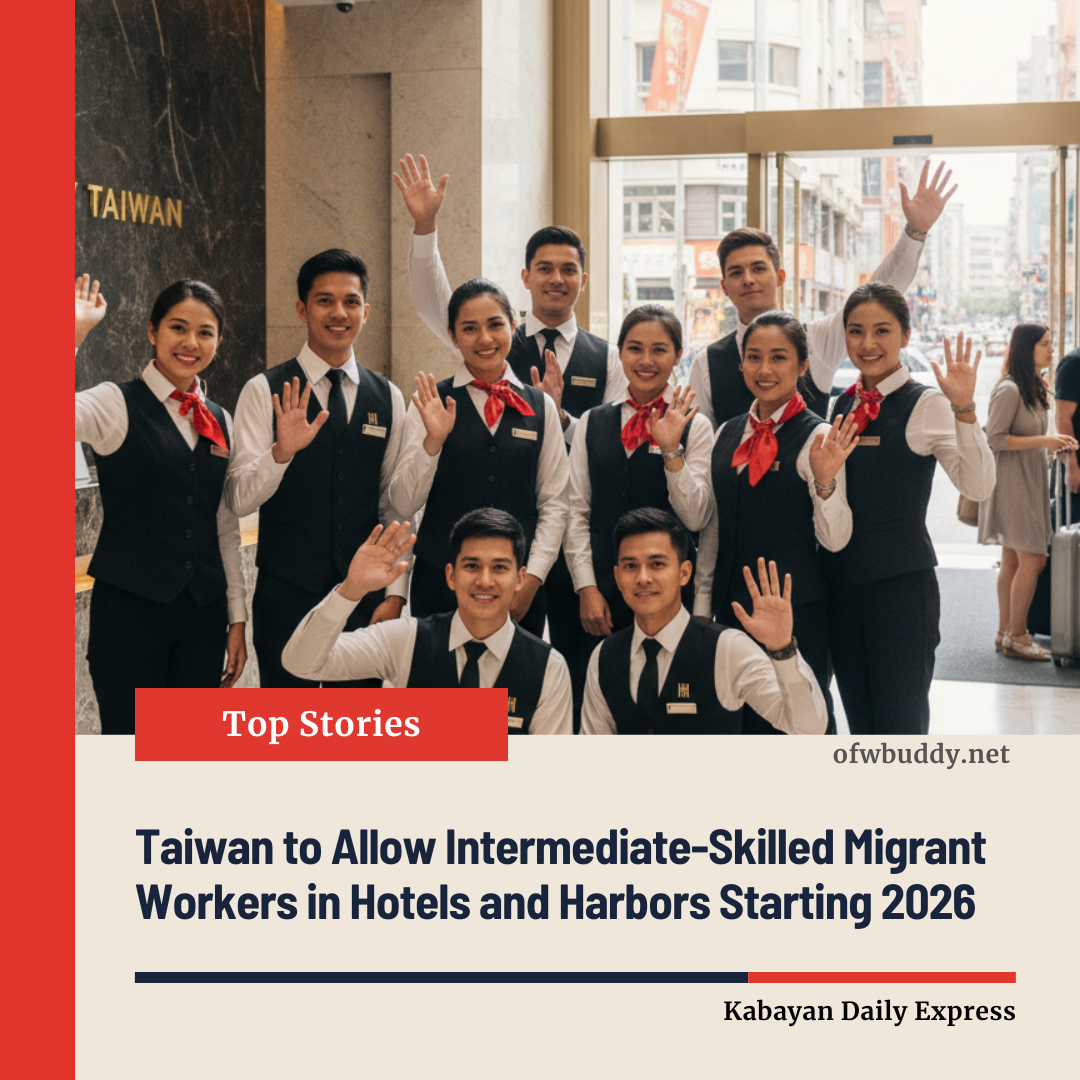Beginning early next year, intermediate-skilled migrant workers will be permitted to work in hotels and harbor operations under a new government initiative aimed at addressing labor shortages in key service industries.
According to reports, the Executive Yuan will finalize the new measures at its regular meeting on Thursday, forming part of a broader labor reform known as the Transnational Workforce Enhancement Program.
Under the policy, employers must raise the monthly salary of one Taiwanese worker by NT$2,000 (approximately US$65) for every migrant worker they hire under the intermediate-skilled category. Additionally, the number of foreign employees covered by this program may not exceed 10% of a company’s total workforce.
To streamline recruitment, the government plans to create an International Labor Recruitment Center, which will negotiate government-to-government agreements with countries such as Indonesia, Vietnam, the Philippines, and Thailand. The goal is to remove middleman agencies and ensure fairer hiring practices for both employers and workers.
The new system will operate on a three-year term, after which employers must again increase salaries if they wish to renew the migrant worker’s contract for another term. Minister without Portfolio Chen Shih-chung (陳時中) said the initiative could benefit as many as 200,000 local workers through higher wages and better employment stability.
In addition, the government will lift the restriction on the percentage of migrant workers eligible to transition into intermediate-skilled positions after six years of employment. Currently, only 25% of foreign employees can be upgraded, but under the new plan, all qualifying workers will be eligible, provided both the employer and employee agree.
However, to ensure local employment protection, the combined total of basic-level, intermediate-skilled, and professional foreign workers in manufacturing companies will remain capped at 50% of the total workforce.
While the policy aims to strengthen Taiwan’s hospitality and logistics sectors, labor advocates have urged the government to prioritize improving working conditions and wages for both local and foreign workers. They cautioned that the real issue may not be a labor shortage, but rather the low pay and demanding conditions that discourage Taiwanese workers—especially younger jobseekers—from entering industries such as hospitality.
The new policy marks a significant step in Taiwan’s ongoing effort to balance domestic employment needs with foreign labor integration, while promoting fair and sustainable workforce practices across industries.
#TaiwanNews #LaborPolicy #MigrantWorkers #IntermediateSkilledWorkers #TaiwanJobs #HotelIndustry #HarborJobs #OFW #MinistryOfLabor #TaiwanEconomy #WorkAbroad

